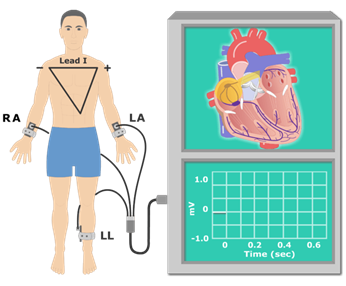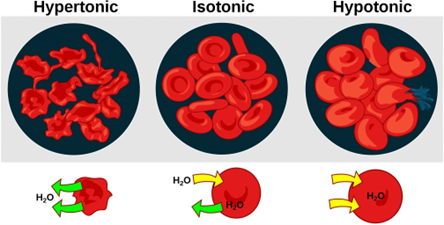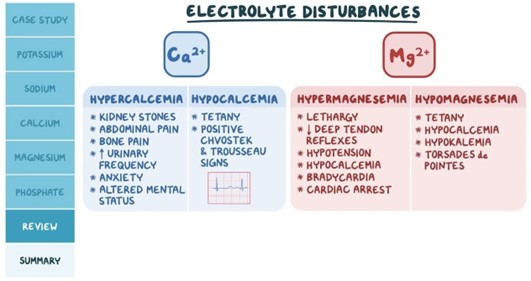Your patient is ordered an EKG upon admission to the hospital. She is very scared and states she has never had one of these diagnostic tests before. Which answer is most appropriate by the nurse regarding EKG.
An E KG is a painless diagnostic study. We will put stickers on your body and atach wires to assess your heart rhythm.
This will only take a minute there is nothing to fear, we do them all the time.
I've performed many ECGs over the years and have become an expert in doing them.
We have many children that come to the ER and receive an ECG. they say they are painless.
The Correct Answer is A
This response provides the patient with accurate and reassuring information about the EKG procedure. It explains that the test is painless and describes what will happen during the test. The other responses do not provide as much information or reassurance to the patient.

Nursing Test Bank
Naxlex Comprehensive Predictor Exams
Related Questions
Correct Answer is B
Explanation
Hypertonic solutions have a higher concentration of solutes (such as sodium, glucose, or mannitol) than the fluid in the body's cells, causing water to move out of the cells and into the bloodstream. This results in the shrinking of the cells and an increase in extracellular fluid volume.
Examples of hypertonic solutions include 10% dextrose in water (D10W), 3% saline, and 5% dextrose in 0.9% saline.
In contrast, isotonic solutions have the same concentration of solutes as the fluid in the body's cells, and hypotonic solutions have a lower concentration of solutes than the fluid in the body's cells.
Therefore, in this scenario, the nurse should administer a hypertonic solution to the client who requires IV fluids.
Correct Answer is ["A","B","E"]
Explanation
These are all electrolyte imbalances. Hyperkalaemia is an elevated level of potassium in the blood. Hypocalcaemia is a low level of calcium in the blood. Hyponatremia is a low level of sodium in the blood. Thrombocytopenia and anemia are not electrolyte imbalances. Thrombocytopenia is a low platelet count and anemia is a low red blood cell count or low hemoglobin levels.

Whether you are a student looking to ace your exams or a practicing nurse seeking to enhance your expertise , our nursing education contents will empower you with the confidence and competence to make a difference in the lives of patients and become a respected leader in the healthcare field.
Visit Naxlex, invest in your future and unlock endless possibilities with our unparalleled nursing education contents today
Report Wrong Answer on the Current Question
Do you disagree with the answer? If yes, what is your expected answer? Explain.
Kindly be descriptive with the issue you are facing.
